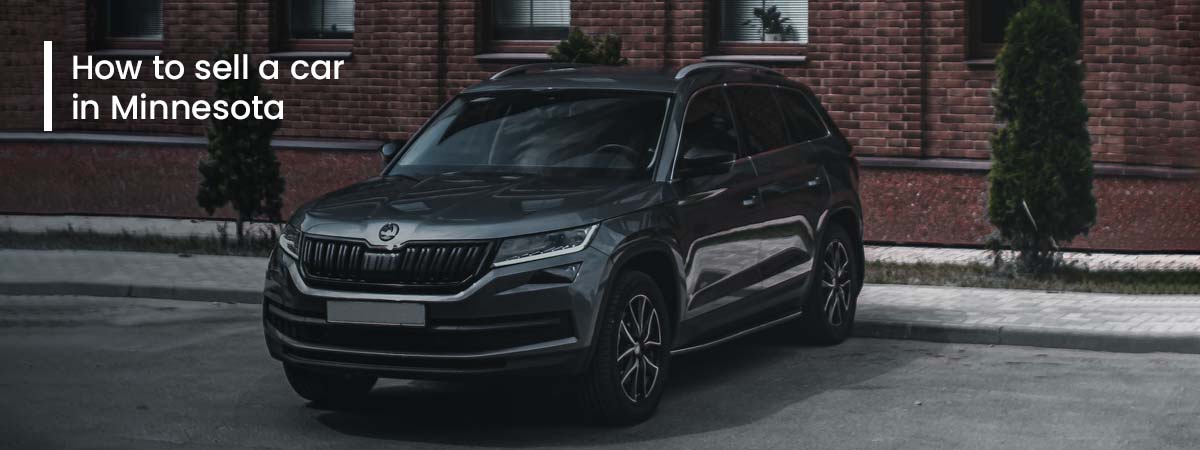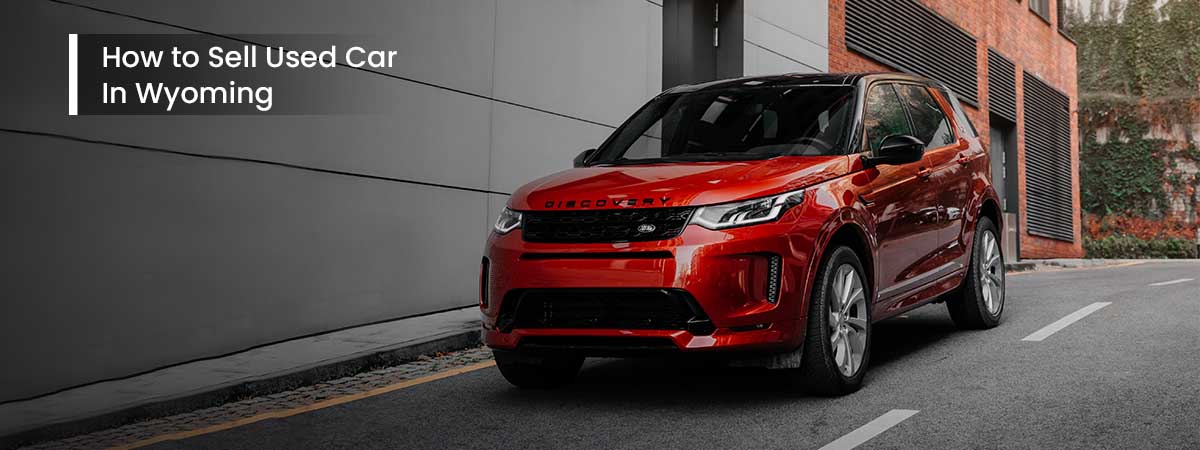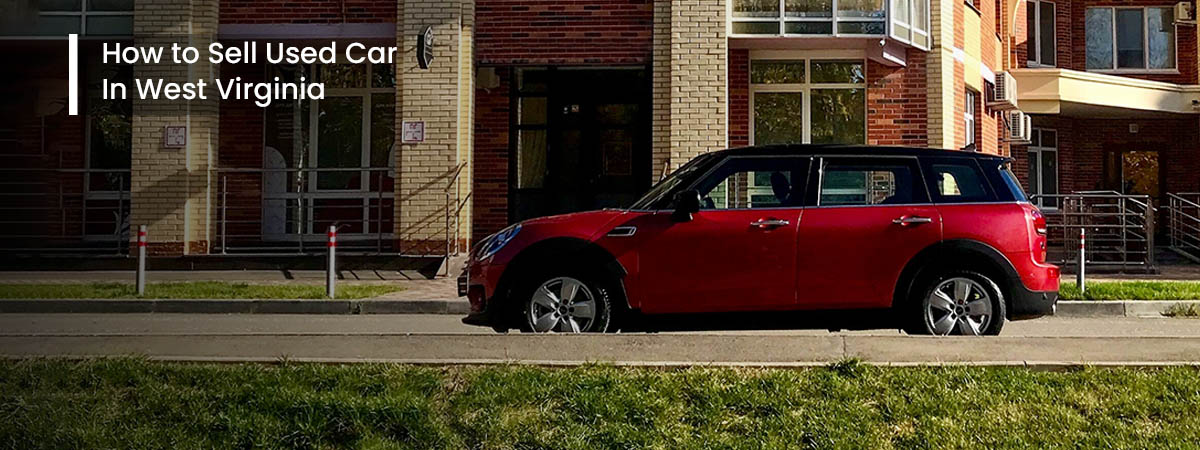How to Sell a Used Car In Minnesota?

The procedures and approach for selling a car online vary by state. Discover how to sell your used car or truck in Minnesota confidentially.If you reside in the Red River Valley, the Twin Cities, the Iron Range, or the Buffalo Ridge and want to sell your old automobile or truck privately, you've come to the perfect location. It's no surprise that, with an estimated 7 million registered trucks and vehicles in Minnesota, thousands of individual car owners in the Land of 10,000 Lakes have used cashforcarsinc.com to sell their vehicles. We've explained the five stages and documents required to sell a car in Minnesota so you can sell your vehicle quickly and for the most money.Remember that most states in the United States regard the car title as a legal document; therefore, use the legal names (no nicknames) of both parties involved and legible handwriting in black or blue ink. Mistakes, typos, and the use of correction fluid may render the document null and void, so be cautious and take your time filling it out.
Step 1: Allow the buyer to have a third party assess the vehicle
Most private automobile buyers pay for a pre-purchase vehicle check performed by a skilled and certified auto mechanic of their choice. Although the buyer pays for the inspection, the seller and buyer must agree on the date and location of the examination. If the examination reveals any problems with the vehicle, you should save the report for your records as the seller.
Step 2: Organize and collect all vehicle papers
Find all maintenance records, the owner's manual, and other vehicle papers. If you can offer the buyer extensive and thorough maintenance documents, it will give the buyer confidence that the automobile has been properly and regularly maintained.Private sellers in Minnesota are not required to give emission paperwork to customers since the state does not perform automobile emission inspections, despite the Governor's announcement in 2019 that stronger emission rules are on the way. If appropriate, sellers must additionally supply a signed lien release card or a notarized lien release form.
Step 3: Create a Bill of Sale
According to Minnesota law, private sellers of cars are not required to have a Bill of Sale of Minnesota. To protect themselves and the buyer, some private owners establish a Bill of Sale. A Bill of Sale should have the following information at a minimum:
- Vehicle Year, Make, and Model
- Vehicle Identification Number (VIN)
- Sale Price Date of Sale
- Odometer reading
- The seller's and buyer's legal names and addresses are printed.
- Signatures of both the seller and the customer
Instead of a Bill of Sale, the buyer and seller might file an Application to Title and Register a Motor Vehicle (PS2000). If the car is being given as a gift, the seller should write "GIFT / $0" on the Bill of Sale and fill out and sign an affidavit confirming that the vehicle is a gift. In Minnesota, private-party car transactions are subject to a 6.5% motor vehicle sales tax based on the entire purchase price or the vehicle's fair market value, whichever is greater. Older automobiles that fulfill specific criteria are subject to a $10 flat fee in lieu of sales tax, as long as they are 10 years old or older and the sales price and average blue book value are less than $3,000. If the vehicle does not fulfill these criteria, it will not be eligible for the $10 flat fee in lieu of tax. Transfers of vehicles upon death, inherited vehicles, and gifted vehicles between spouses, parents, children, grandparents, and grandchildren are all nontaxable motor vehicle transfers that do not require an affidavit; gifted vehicles outside of those circumstances are subject to the motor vehicle sales tax. A list of sales tax exemptions is available on the Minnesota DMV website.The National Highway Traffic Safety Administration's (NHTSA) odometer disclosure standards, which affect some private car purchases in Minnesota, were revised in December 2020. Any vehicle of the model year 2011 or newer (2012, 2013, etc.) that is transferred between January 1, 2021, and December 31, 2030, will require an odometer disclosure. Beginning January 1, 2031, every vehicle less than 20 model years old will be required to have an odometer disclosure. Previously, the NHTSA only mandated disclosure for the first ten years. Cars manufactured before 2010 are exempt from odometer disclosures. On the website, Minnesota provides an Application for Corrected Title and Odometer Disclosure Statement.
Step 4: Transfer the title and file the sale report
It is advised that car titles be transferred at any of Minnesota's almost 200 deputy registrar offices.If the vehicle's title has been lost, stolen, or severely damaged, you must complete and submit an Application for Duplicate Title or Registration (PS2067A) and pay all associated fees before selling the vehicle. If the title was owned by more than one owner, just one of them must sign.Private car transfers in Minnesota must provide the following information:
- All vendors named on the title must print and sign the title.
- Price of sale
- The date of sale
- Disclosure of the odometer (required for all vehicles less than 10 years old)
- Damages are disclosed (required for all vehicles less than six years old)
- The buyer(s) submit their printed legal name, birth date, and signature.
It is critical to demonstrate to the buyer that the VIN (vehicle identification number) matches the information on the title. If the vehicle has a title, the transfer must be recorded on the title. The Minnesota registration card can serve as proof of ownership if the vehicle has never been titled. In the event that one of the vehicle's co-owners dies, a new title may be issued to the remaining owner by completing a notarized Affidavit of Surviving Spouse (PS2071) and presenting evidence of death. If the car was given to you, record a $0.00 sales price on the title.
Step 5: Do not remove the license plates or record the sale
In Minnesota, unlike most other states, when you sell a car, the license plate, registration, and taxes are transferred and allocated to the buyer. Remove your license plates unless they are specialized or personalized. In Minnesota, all private owner car transfers, including gifted or donated vehicles, must be reported within 10 days of the transaction. If you prefer not to register the sale online, all Minnesota titles include a Record of Sale stub that may be filled out and submitted to a Driver and Vehicle Services office. Buyers are not required to record the transaction.
The Easier Way to Sell Your Car
Now that you've learned everything there is to know about selling a car in Minnesota, it's time to determine where to list it. Cashforcarsinc.com makes it simple to sell your car. With ready-to-sign state documentation, encrypted chat, and more, our platform provides all the tools and recommendations you need to make the transaction a breeze.





